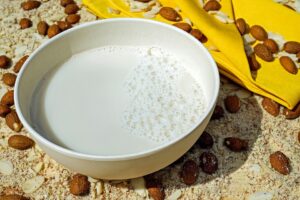
12 benefits of asparagus
Asparagus has a high nutritional value and a good source of important minerals and vitamins that are imperative to the body’s cellular and metabolic functions. There are three basic types of asparagus: green, purple and white asparagus.
Green asparagus is the most common one you will see in the shops. It sprouts from the ground and when fully exposed to the sun it turns fully green thanks to the process called photosynthesis.
Purple asparagus is more tender compared to the green and white kind because it has less fiber. It is also sweeter because of its high sugar content.
White asparagus is more expensive than the green one and the price is almost double because of the high cost it takes to produce it. It is grown without light so the plant is unable to photosynthesize. In Europe, white asparagus is considered a delicacy.
These images show how white asparagus is grown without light (asparagus fields in Germany).



Here are 12 health benefits of asparagus:
- Asparagus is packed full of goodness including vitamin A, an essential nutrient that helps to protect eyes, skin and immune system.

- Asparagus contains essential B vitamins that are helpful in retaining healthy eyesight.
- It is a rich source of vitamin C, which boosts your immune system and helps to strengthen the capillaries and is involved in collagen formation.
- Asparagus is also a good source of vitamin K, used in bone formation and blood clotting.
- The magnesium content in asparagus can help in keeping you energetic and alert for longer periods of time without resulting in fatigue.
- Asparagus also contains folic acid, important for making blood cells. Folic acid is also an essential nutrient during pregnancy as it is needed for fetal development.
- Symptoms of a hangover include nausea, fatigue, exhaustion and dehydration which can be cured by a serving of asparagus.
- Eating asparagus promotes healthy bacteria in the large intestine and can help reduce bloating.
- Asparagus is a mild diuretic and is believed to help detoxify the body.
- The niacin in asparagus is a compound which can get rid of the most severe cases of acne.
- Alleviate menstrual symptoms.
- The dietary fiber and niacin in asparagus can help in reducing levels of harmful cholesterol.
Tip: When you buy asparagus, use it as soon as possible, preferably within a day or two. Ideally, to keep it fresh, stand loose asparagus in a glass of water and store in the fridge.
Cooking methods and times: Before you cook your asparagus, trim a centimetre off the woody bottom of the stems and either discard them or use them for flavouring stock.
Steam for 2-5 minutes, roast for 5-10 minutes, boil for 3 minutes, grill for 6-8 minutes and BBQ for 5-10 minutes.
Asparagus combines well with peas, potatoes, mushrooms, lemon, mint, pine nuts and etc. You can add asparagus to pasta, risottos, stews, stir-fries just before they are done as they are cooked in a few minutes.
I have recently prepared three meals with asparagus, see photos below.
1. Marinated tofu with millet and asparagus

2. Quinoa with tofu, asparagus, and porcini mushrooms

3. Pasta with asparagus, porcini mushrooms, peas, and tofu

Hope this article helps you to pursue you in using asparagus more often in your kitchen. I have certainly increased the use of asparagus after reading the health benefits of this amazing vegetable. 😉
 Previous Post
Previous Post Next Post
Next Post


